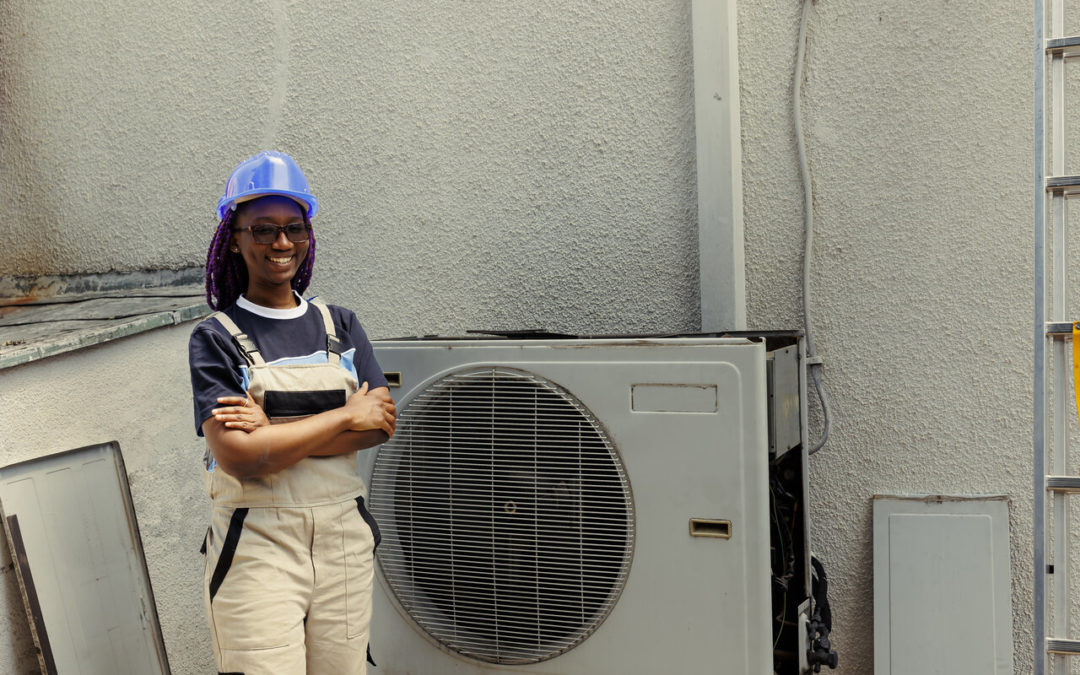The quality of the air we breathe has a significant impact on our overall health and well-being. Indoor air quality (IAQ) is a particularly important consideration, as most people spend most of their lives indoors, either at home or at work. Poor indoor air quality has been linked to various health concerns, including allergies, asthma, respiratory infections, and even more severe problems in extreme cases. This makes it vital for homeowners and businesses to understand the factors influencing their indoor air quality and how their HVAC (heating, ventilation, and air conditioning) system plays a crucial role in maintaining it. In this blog post, we, Ottawa’s Plumbing & Heating Experts, will explore the importance of good indoor air quality and provide valuable information on how your HVAC system can help safeguard it.
An effective HVAC system ensures indoor air is properly circulated, filtered, and conditioned to create a comfortable and healthy living environment. However, if your system is not functioning optimally or is poorly maintained, it can adversely affect indoor air quality. Pollen, dust, mould spores, pet dander, and other pollutants can accumulate and circulate within your home or business, leading to potential health issues for occupants.
In the following sections, we will delve into the various factors affecting indoor air quality, your HVAC system’s role in controlling it, and how you can implement best practices to maintain a clean and healthy indoor environment. Furthermore, we will discuss how professional HVAC maintenance services, like those provided by Pipes Plumbing, can help ensure that your system operates optimally and contributes to a safe and comfortable atmosphere in your home or business.
Factors Impacting Indoor Air Quality
A variety of factors can influence the quality of the air in your home or business. Some of the most common elements that can contribute to poor indoor air quality include:
- Outdoor pollutants: Pollen, dust, and vehicle exhaust can enter your indoor spaces through open doors, windows, and vents.
- Indoor sources: Everyday activities such as smoking, cooking, and using cleaning products can release contaminants into your indoor air.
- Building materials and furnishings: Products such as paint, carpeting, and furniture can emit volatile organic compounds (VOCs) that impact air quality.
- Biological agents: Bacteria, mould, and dust mites can grow and multiply in damp environments, leading to poor indoor air quality.
- Insufficient ventilation: Indoor pollutant levels can increase without proper ventilation, and fresh air circulation can be limited.
The Role of Your HVAC System in Maintaining Indoor Air Quality
Your HVAC system plays a central role in maintaining indoor air quality by controlling temperature and humidity and ensuring adequate ventilation and filtration. Here are some ways that your HVAC system can directly impact your indoor air quality:
- Air filtration: Your HVAC system filters out dust, pollen, pet dander, and other airborne particles by passing the air through filters before circulating it.
- Ventilation: Your HVAC system promotes proper air circulation by introducing fresh outdoor air into your indoor spaces and removing stale, contaminated air.
- Humidity control: An HVAC system can regulate indoor humidity levels to prevent mould growth and reduce the presence of dust mites in your home or business.
- Temperature control: Maintaining a comfortable indoor temperature is essential for good indoor air quality, as extreme temperatures can facilitate the growth of bacteria and mould or increase the release of chemical emissions from building materials.
Best Practices for Maintaining Healthy Indoor Air Quality
Taking an active approach to maintaining a clean and healthy indoor environment can greatly impact the health and well-being of occupants. Here are some best practices to consider for improving your indoor air quality:
- Regular HVAC maintenance: Schedule periodic inspections and maintenance for your HVAC system to ensure optimal performance and timely replacement of filters.
- Clean your air ducts: Have your air ducts professionally cleaned to remove accumulated dust, mould, and debris affecting indoor air quality.
- Manage indoor humidity levels: Using a dehumidifier or running your air conditioner can help keep humidity levels within a range of 30-50%, significantly reducing the risk of mould growth.
- Use low-VOC materials and products: Whenever possible, opt for low-VOC alternatives when painting, installing carpeting, or purchasing furniture and household products.
- Implement proper ventilation practices: Regularly open windows (when outdoor air conditions permit) and use exhaust fans in kitchens and bathrooms to help remove contaminants and improve air circulation.
How Professional HVAC Maintenance Services Can Help
Investing in professional HVAC maintenance services is a crucial aspect of maintaining good indoor air quality. Here are some ways expert guidance and service can make a difference:
- Expert inspections: An experienced technician can identify any potential issues with your HVAC system, such as leaks, damaged components, or inefficiencies that could negatively impact your indoor air quality.
- Optimizing system performance: Regular maintenance ensures that your HVAC system operates efficiently, with clean filters and functioning components, maximizing its ability to filter and circulate indoor air.
- Ensuring proper ventilation: Professional HVAC services can help ensure your system is properly sized and configured for your specific needs, providing optimal ventilation and circulation.
- Assistance with upgrades and improvements: An HVAC professional can recommend and install upgrades, such as advanced filtration systems or energy-efficient components, to enhance indoor air quality.
Conclusion
Indoor air quality is crucial in maintaining a healthy and safe environment in your home or business. Understanding the impact of your HVAC system and the various factors affecting air quality is essential for taking proactive measures. By investing in regular HVAC maintenance, utilizing best practices, and working with experienced professionals like Pipes Plumbing, you can breathe easier knowing that your indoor environment promotes comfort and supports the health and well-being of its occupants. Contact us today to discuss how we can help you maintain and improve your indoor air quality.


Recent Comments